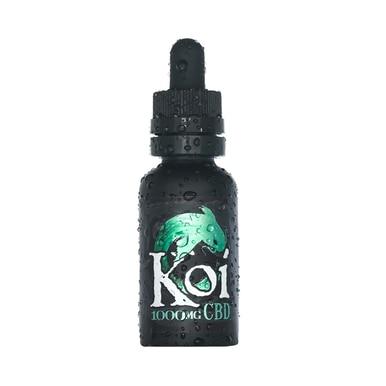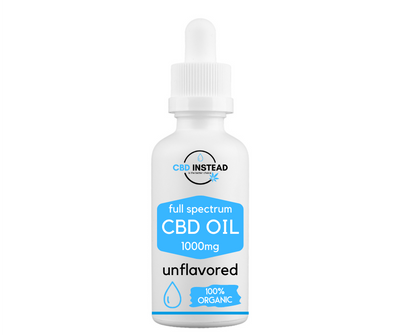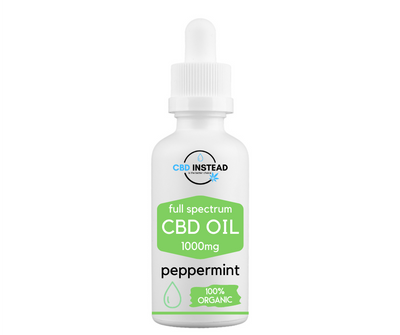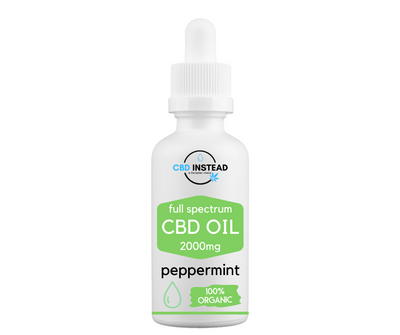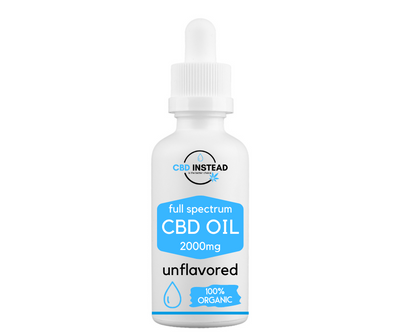The CDC projects that by 2050, one in every three people will have diabetes. Right now, our score is every 1 in 10 adults has diabetes. But we don’t have to go in this perceived direction. One of the biggest things we can do is change our diet. By romanticizing healthy food, we could win part of the battle. However, not everyone gets diabetes from being overweight, and some people who are already there have a difficult time coming back. Some may result in diet pills or fad diets, but may fall into even worse health or going back to their old habits. This debacle is where CBD oil comes in. Cannabidiol might be the solution to our country’s diabetes problem.

What Is CBD?
Cannabidiol (CBD) is a chemical we find in the cannabis sativa plant, also known as marijuana. Unlike the most well-known cannabinoid, THC, cannabidiol doesn’t get you high. It is a safer medicinal alternative to the majority of the pharmaceuticals on the market and is tolerated at extremely high doses.
Cannabidiol is known for covering so much across the medical field. People with depression, inflammation, skin rashes, anxiety, and even diseases like fibromyalgia are finding relief through cannabis oil. It does this because it regulates your endocannabinoid system.
What Is The Endocannabinoid System?
Everyone has an endocannabinoid system, as long as you’re a mammal with a spine. We haven’t decided on your goldfish yet because there has been conflicting evidence. What the endocannabinoid system does is regulates your body. It is how your body knows when to eat, when to have a fever, or when to stop feeling angry.
Parts Of The Endocannabinoid System
Endocannabinoids
Your brain has proteins that create chemicals called endocannabinoids. They are the chemicals in your brain that are similar to cannabinoids from marijuana. They work as mediators in the space between neurons called synapses. They travel from the postsynaptic cell through the synapse to the presynaptic cell and bind to cannabinoid receptors. By releasing these endocannabinoids, the postsynaptic cell can control what message it receives from the sending cell.
Cannabinoid Receptors
We have identified two cannabinoid receptors, CB1 and CB2. These receptors are all over your body in your cells. When these receptors are stimulated, they start creating effects. CB1 receptors are more densely located in your brain, controlling functions over your neurological system. The CB2 receptors are more spread out through your body and are involved with the immune system.
Metabolic Enzymes
These proteins are what create the endocannabinoids when the body needs them. Synthesizing endocannabinoids isn’t all they do, they also are responsible for cell repair and growth. When the endocannabinoids are no longer required, these enzymes clean up the debris.

The Endocannabinoid System And Diabetes
Researchers think that an overactive endocannabinoid system could contribute to diabetes. The endocannabinoid system is in charge of energy intake and storage where overactivity can impair glucose and lipid metabolism. Overactivity can lead to inflammation in the pancreas which controls insulin production, which can eventually lead to cell death. It’s thought that hyperglycemia common in diabetes makes the endocannabinoid system even more overactive, making it a never-ending cycle.
How Can CBD Help With Diabetes?
Diabetic Retinopathy
High blood sugar levels can cause damage to blood vessels in the retina called diabetic retinopathy. This damage can make these vessels swell, leak, and even stop blood flow. There are also cases where abnormal veins developed in the retina. Any of this type of damage to can make you lose your vision.
In 2006, a study on the effects of cannabidiol and diabetic retinopathy in rats was published. They explain that neurodegeneration is a significant component of this disease. CBD prevented the breakdown in the vein walls while preventing death in the rat’s central neurons. Researchers think that by reducing oxidative stress, CBD prevents the Blood-Retinal Barrier breakdown. They also found that rats without diabetes were unaffected.
Overeating
Diabetes is caused by your body not providing the right amount of insulin. Insulin comes from your pancreas, so if that organ becomes damaged, you’re going to have some trouble. In 2015, there were 1.5 million new cases of diabetes in America. Considering that 87.5% of these patients were overweight or obese, it may be because of their diet.
Overeating can cause dysfunction in the endocannabinoid system. This could cause diabetes because the system controls the lipid and glucose metabolism. Unbalanced energy intake, like overeating, can make your endocannabinoid system overactive. Researchers believe it might contribute to excessive fat accumulation.
Studies have shown that you can retrain your brain and your eating habits with CBD oil. When you eat, your reward system goes off. This is how people can become addicted to eating or continue eating even after they are full because they enjoy the feelings and sensations of eating. This is especially true with processed food or sugar, which are known to be extremely addictive.
CBD calms down your overactive neurons, making eating enjoyable but not like a drug. Just the way it helps people quit smoking cigarettes or doing heroin, CBD can curb your desire to eat. It doesn’t make you starve yourself; it just regulates your reward system by calming overactive neurons.
Getting The Weight Off
Hindsight is 20/20. Yeah, maybe you shouldn’t have spent all of your college years eating fast food. But you can’t change years of a poor diet just by knowing better now. Some might feel they could exercise every second of their life and not make any changes on the scale. Before you result in unsafe diet pills, CBD can help you trim off fat.
You have two types of fat that your body makes. The white fat cells which your body stores, and the brown fat cells which your body burns for energy. CBD oil has shown that it helps the body brown fat, making it easier to work it off.

But I’m Not Overweight
Not everyone with diabetes is overweight. Though the majority of them are, incidences still occur in people at a healthy weight. You don’t have to feel left out, though, because there is a study for you, too! A study with nonobese diabetic mice found that the use of CBD reduced the incidence of diabetes by 86%. Cannabidiol is thought to reduce the plasma levels of proinflammatory cytokines, which are what can make diseases worse. It also showed to minimize insulitis.
Heart Problems
Patients with diabetes often have problems with their heart. One of the diseases that is usually tagging along is coronary artery disease, the most common heart disease. This disease is most known for how it clogs up arteries, but the effects afterward are where the worries lie.
With coronary artery disease, your cells in your heart can begin to die, or your arteries can completely clog causing a heart attack. A study shows that CBD has the potential to reduce cell death in the heart muscles, and reduce nuclear-factor KB, which is an inflammatory molecule. Since CBD is also an anti-oxidant, it also showed that it reduces high-glucose induced oxidative and nitrative stress.
Random Pain
Patients with diabetes may start feeling pain or lose feeling entirely from nerve damage. About 60% of people with diabetes have neuropathy damage. This damage can be caused by high blood glucose, abnormal blood fat levels, inflammation, genes, and even lifestyle choices. CBD oil has shown that it can reduce the pain you feel from neuropathy damage.
Switching To CBD
If you are thinking about changing to CBD or adding it to your regimen, talk to your doctor first. Several medications can cause adverse reactions, and having someone to monitor your health while you make medical changes is something you should definitely take advantage of. Just like with mental health, quitting the medication you are currently taking to switch to something else without medical supervision could prove to be lethal. This includes more than just marijuana; this is this case with all types of medication.
How Much CBD Should I Take For Diabetes?
When you are first using CBD, you should start low and gradually at a snail's pace elevate your dose. Just taking 400MG of CBD could have absolutely no consequences or it could cause adverse reactions, it all depends on the body. Just like how not everyone can eat peanut butter or take Advil, there is always a small percentage of the population who can’t participate. If you’ve never taken it before, you would have no idea if you are that person.
Dosage can range from 10 milligrams to 300 milligrams, so starting at a minimal dose and raising it slowly can help you find the sweet spot. It has also been discovered that there is such a thing as too much CBD. Not because it can make you overdose, but because it just becomes less efficient. This is another reason it is so important to start low and go slow; you don’t want to miss that sweet pocket of health.
If you are ready to take CBD for your diabetes, be sure to stop by our shop. We have CBD oil pills that are the easiest way to use CBD if you never have before. Just like taking any other medicine! If you feel like being adventurous, check out the CBD isolates so you can start making your very own medicinal snacks!














